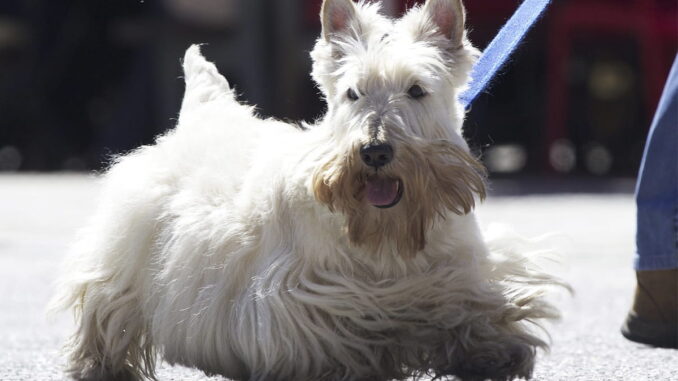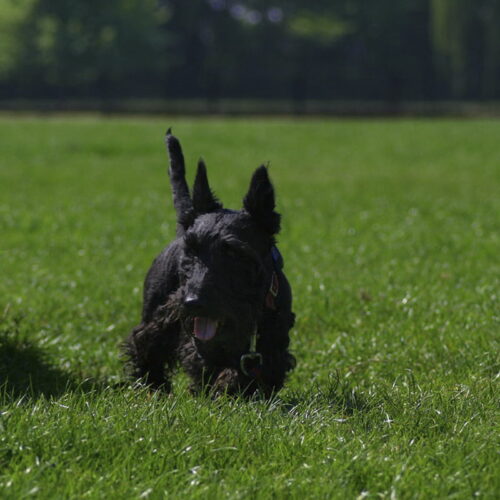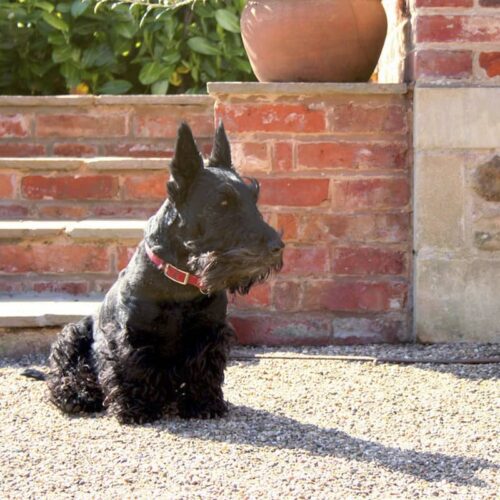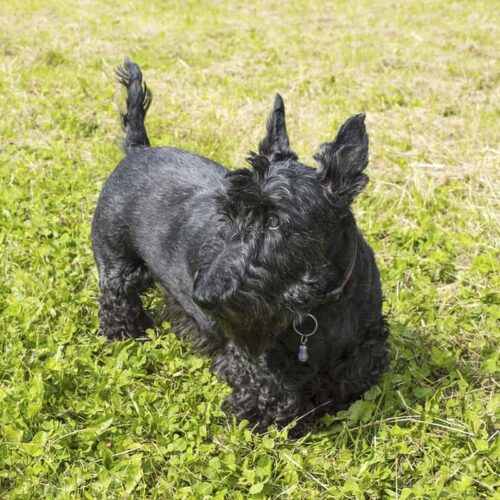
The Scottish Terrier shares a lot of similarities with his other Terrier cousins including Yorkshire Terrier and West Highland White Terrier. They share the good qualities but also some traits that might not make them so perfect for seniors and old people.
Are Scottish Terriers good for seniors?
Scottish Terriers are super friendly, fun-loving, and playful as puppies. While their friendliness level remains the same, they mature into fearless and independent dogs that are exceptionally loyal to their owners. Here are some reasons why Scottish Terriers could be good for seniors and retirees.
Scottish Terriers are good apartment dogs
Like many other small dogs, Scottish Terriers adapt well to apartment living. They are content staying indoors with you as long as they are given their daily walks.
Scottish Terriers need moderate exercise
Most seniors don’t prefer dogs that require extensive exercise. Some may have limited mobility and some simply may want to spend more time relaxing. Scottish Terriers are good for both. Due to short legs, their bodies are not built for jogging, hiking, and long walks. They are happy with moderate walks and indoor playtime.
Scottish Terriers don’t shed excessively
Scotties have double coats: a hard topcoat and a soft undercoat. Since his hair keeps growing, he doesn’t shed excessively. This low-shedding also makes them hypoallergenic.
What are the downsides for seniors?
Hard to train
Scotties are fiercely independent with a mind of their own. Since they were bred to follow prey and work independently of the owner without needing supervision, they can be stubborn when it comes to training. You’ll have to let them know who’s the boss from a young age. With patience and positive reinforcement, training your Scottie is possible.
Aggressive towards other animals
Scottish Terriers are not known for being pleasant around other animals. Again, because of their hunting instincts, Scotties are likely to chase and catch small animals. So if you are thinking of also keeping a hamster or a rabbit, they are going to be in trouble.
Extensive grooming needs
Like other terrier breeds, the Scottish Terrier also needs to be groomed extensively. Their long hair should be brushed and trimmed regularly to prevent it from getting matted and tangled. You should be brushing your Scottie for 20 to 30 minutes every week but they shouldn’t be bathed too often since their skin can get extremely dry.
Health problems
Scottish Terriers, unfortunately, are also prone to some genetic health problems. They may suffer from bleeding problems, joint disorders, skin conditions, progressive retinal atrophy, and some neurological issues. While Scotties are a little risky in the health department, not every one of them turns out to be unlucky.
These are some downsides to owning a Scottie and that’s why he is not ranking high on our list of best dogs for seniors.
Disclaimer: This website's content is not a substitute for veterinary care. Always consult with your veterinarian for healthcare decisions. Read More.




